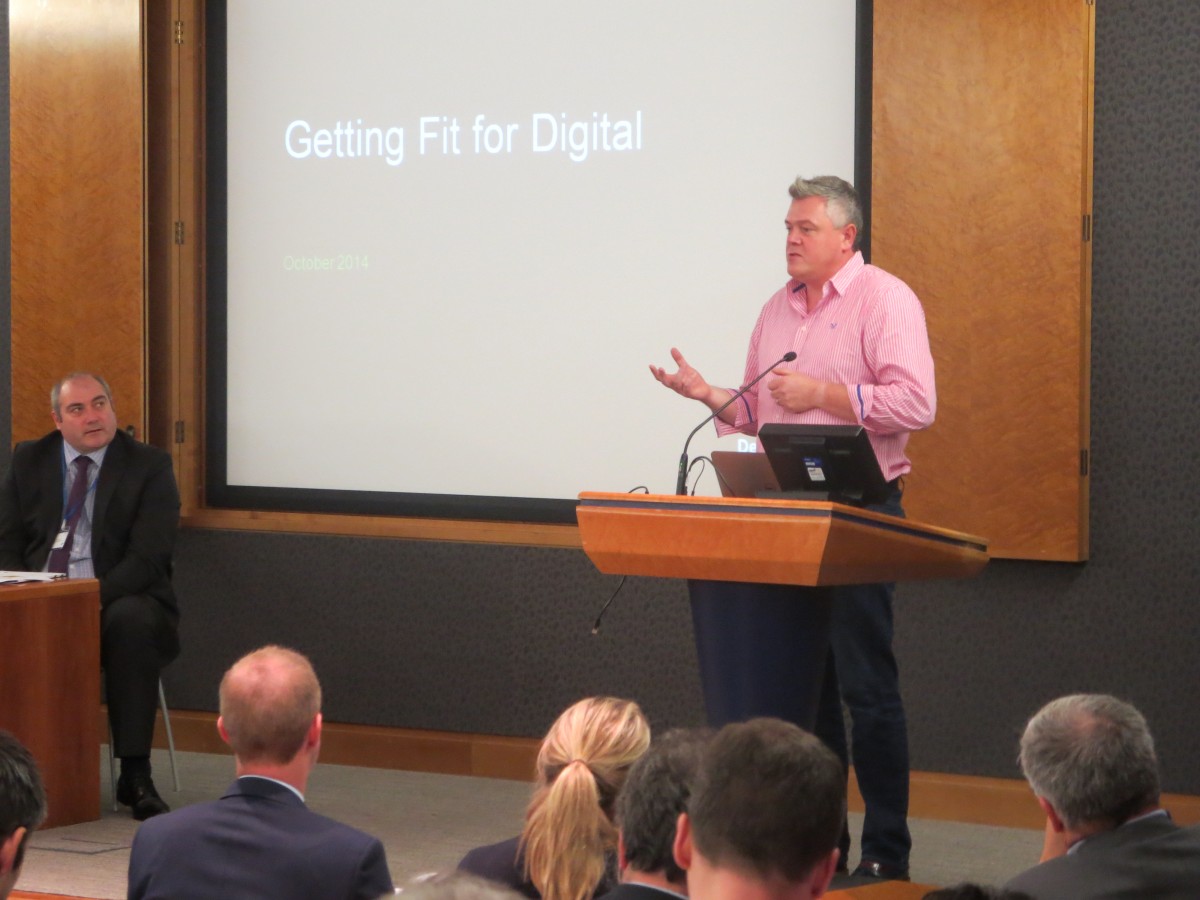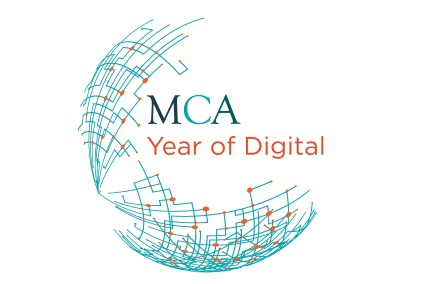Deloitte were pioneers in Digital consulting. Deloitte Digital is one of 3 MCA firms in the top 10 of the respected Econsultancy list of leading Digital advisers. Royston Seaward, Head of Propositions for Deloitte Digital UK, talked to MCA Think Tank Director Paul Connolly about how Deloitte Digital emerged and its prospects for the future.
When did Deloitte really get going on Digital?
We started to notice a change in client demands in the early part of the decade. It wasn’t something they were calling Digital at that stage. But they wanted to improve their contact with customers and the experience those customers were offered. And there was a fair degree of restlessness. The explosive evolution of Digital devices was driving something that intensified as the economy returned to growth. Businesses felt that with increasingly networked and demanding consumers, they needed to improve their channels. But they also had to grow and diversify just to survive.
So, what they wanted had a technology element, for sure, but delivered in an agency style, rather than as part of a big long-term SI relationship. It also required a fair amount of strategy and change consulting. So we came up with the idea of Deloitte Digital in 2011 and launched it in 2012. Since then it’s expanded from 104 to 480 consultants, mostly through organic growth, with only around 30 people coming through acquisition. Increasingly, though we have separate, but linked branding, we’re seen as an integral, not a bolt-on part of the Deloitte business.
You say you’re ‘increasingly’ seen as central to Deloitte. When you first launched, did the wider business get it?
Deloitte’s a big organisation, committed to providing client satisfaction and being profitable. So innovations always get scrutinised closely. Of course, people got it to varying degrees, but in truth we were well supported. In fact, what gave us an advantage was that we were determined to wash our face, winning revenues first before investing in the new offer. The partnership structure means that lots of intelligent and impressive people get to have their say. But the flipside is that provided you are able to bear the commercial risk, you are allowed to innovate. So when six of us decided that we were going to go for it, we were given the space to do so – provided we owned the consequences. The results speak for themselves. We grew rapidly – and were more profitable than many other parts of consulting.
Our new Deloitte MD is very supportive. We’re a major and respected part of the business. Everyone at Deloitte gets how important Digital is. And we are making a difference culturally. In the past Deloitte Digital might have been seen as outriders on things like dress. Now there’s now convergence. We’re meeting in our office, which is certainly a bit different from a traditional Big 4 working environment, more agency feel, airier, more free-flowing, with people in jeans and T-shirts. But many of my people are in suits for client meetings. And when I went to the consulting business leaders meeting in Deloitte a few nights ago, many of the partners were in casual dress. The look and feel of corporate Britain is changing and at Deloitte this is a journey we are deep into.
You were early adopters of Digital as a market and organisational challenge. Now there are quite a few models for Digital practices in consulting firms. If you could go back in time is there anything you would do differently?
I might make a case for earlier investment in premises and kit. But the overall model was right. Deloitte retained a very significant IT advisory presence throughout the whole of the last decade. This included pioneering work in the design and build of websites and other ecommerce channels. So we were able to organise in this way pretty readily.
What are the challenges of developing an effective Digital offering for a consulting practice?
Digital is new and evolving. It’s not just technology. And it isn’t just change management. So one of the first challenges is getting the right blend of skills involved. Pulling together multi-functional teams. To some degree, that was initially reasonably straightforward with technology. Digital was seen as being at the top of the technical advisory pyramid, providing the applications, networks, analytics, social media models which are in turn supported by technological platforms. But now we’re providing a Digital stripe for strategy offerings. In fact much of the Digital challenge is essentially strategic: coping with new customer expectations, testing new products and channels, managing increasingly disintermediated value and supply chains. So a skills blend of consultants who understand business strategy and those who get Digital is critical. And it’s essential that they understand each other.
You say the challenge is evolving. In what ways?
Part of it is about new markets. Much of the urgency around mobile or social media has been in retail and other classic B2C contexts. Increasingly we’re seeing the next set of Digital challenges emerging in B2B, especially around social media. Some of the most prominent disruptors also have their eyes on B2B markets. Airbnb is already in the business market. What happens when Uber gets going in business transportation? All these changes will mean we’ll have to bring together different mixes of sector and Digital expertise.
And part of it is about Digital going deeper. I mentioned Digital being at the top of the technical advisory pyramid. Yet increasingly firms that have modernised their customer channels also have to improve their technical architecture, their supply chains, and digitise their processes. Mobile technologies can improve employee efficiency and the quality of their working environment. Indeed people of all ages – not just Digital natives – now bring assumptions from their increasingly digitised recreational lives into their workplaces. So firms are going to have to overhaul their ways of working and collaborating to the same extent that they have transformed their customer-facing front ends. This will mean new relationships between our Digital practice and the technology practice, with the boundaries shifting again. Digital is reaching further down the pyramid.
However, the unifying factor in this deeper digitisation will still be the customer. Even internal digitisation will need to feed through into a better experience for customers. This is already leading to some interesting incentive models. Branches of high street retailers are being rewarded for online sales to addresses in nearby postcodes, acknowledging the degree to which they act as physical showrooms for online purchases.

Royston Seaward presenting at the Consultancy Buyers Forum 'Digital Disruption' event (October 2014)
When we began the Year of Digital, some predicted that term ‘Digital’ itself would not last the Year. If anything it appears to have become more commonplace. Is that because of the deepening you describe?
It’s partly that. But it’s clear we’re in an era of Digital domination and disruption. Companies that are steeped in Digital, like Uber, are the fast growing brands. They’re not fettered by preconceptions predating Digital. So they are defining the market. The challenge for big brands is to reinvent themselves. And that’s not easy. Kodak produced Digital cameras. But no one uses Digital cameras anymore. So Digital can destroy Digital.
Who is doing the reinvention well? Lego?
They’re often mentioned, though to some degree they have a loyal, almost cult following. Some other CPGs have done well by creating online communities around their brands. Nespresso for instance. Unilever have also set up dynamic interactions with their customer base.
Our client John Lewis have managed the transition to Digital really well. The ease of click and collect, the ability to return unwanted goods purchased online to a local Waitrose, with all the logistical and supply chain challenges that entails: they’ve committed to these models. It’s not so much that they’ve changed their brand values. Rather they’ve recast a strong brand, noted for having customer service and quality at its heart, for the Digital Age.
You said about nine months ago at an event on best practice in buying consulting that clients would ask you to help them ‘go Digital’. Is that still happening?
To a lesser extent now. They’re starting to get it. And more often clients want assistance with a product or channel and how to launch it. This can provide a route into wider discussions on the relationship between Digital and their wider business strategy.
Interestingly, some of the first generation technology vendors are asking for help. Providers of disc-based, shrink-wrapped software may have real challenges in moving to Cloud-based subscription models. This may have nothing to do with technology, where they probably know their onions. Rather it’s about transitioning from a world of largely invisible consumers to a network of interactive and potentially critical ones. Retaining loyalty is challenging in that context.
You’ve mentioned skills challenges in consulting. How far are the Digital skillsets really changing how consulting is done?
It depends on what you mean by Digital skills. Much consulting historically has been about working with clients using proprietary methodologies. Now what we are seeing increasingly is the application of design thinking, a product of the Digital Age, to business problems. We’re also witnessing the need not just to deploy new skills, but to investigate the potential of new technologies. We devote a lot of resources to testing innovations like virtual reality or 3D printing, to see how they can benefit clients and also have relevance to the ‘business’ of consulting.
Consultancies across the MCA are suggesting that they’re doing more R&D because of Digital and developing ‘point of view’ approaches. That seems to fit with what you’re saying.
Definitely. Productivity and profitability in consulting in the future will depend to a great extent on disintermediating some consulting activities, including some aspects of analytics, or creating high-value propositions based on real Digital insights. Both will require investment in R&D.
So should Digital also help transform the buying process for consulting?
Of course. Look, if you’re overhauling the mobile presence of a retailer, giving a manufacturer greater understanding of their customers than they’ve ever had before through data analytics, helping a B2B firm exploit social media, or improving a traditional business’s bottom line through end to end Digital transformation, that’s real value. Something like a 0.5% share of the business benefit, not time and materials, is what we should be looking for. And with incentives like that in place, we as an industry would strive to become even more daring and cutting edge than we are.
What trends is your R&D telling you we can look out for in the future?
We’re interested in the potential of sensor technologies and the Internet of Things. A lot has been made about possible applications here in relation to cars, heating systems and we’re involved in all that. But more predictive and smart automation will also be a benefit in other areas. Sensors in a drinks vending machine could combine data about current consumption rates with information about weather (imminent heatwaves, for example) to predict when the machine will need to be replenished. We’re also interested in new Digital mixes. We’ve been examining ways to create a personally tailored shopping experience that combines Facebook profiles with virtual reality.
How do you see models of that sort playing out in the context of increasing popular and regulatory interest in data ownership?
Who knows? We’ve been exploring lots of scenarios here, including trusted third party models, where people provide data to partners who look to secure them best value and good deals. But it’s not clear how this will debate will develop culturally – or generationally. Many young people are relaxed about high levels of information disclosure. The key for businesses will be to provide fair value for the data they get from customers. If they do, many people won’t have a problem with that.


